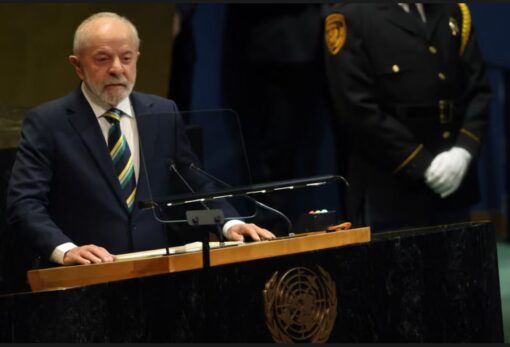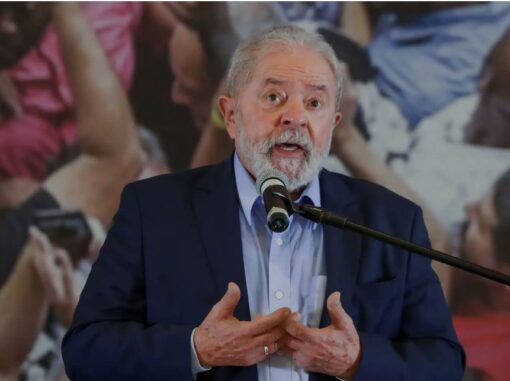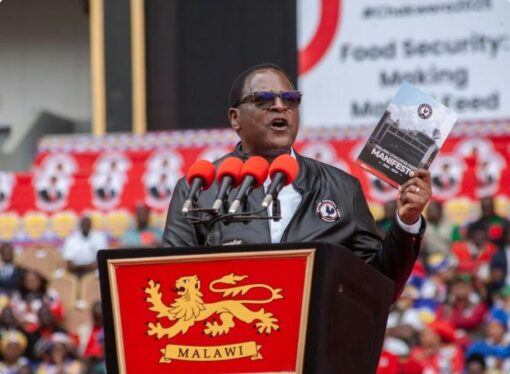Brazil’s president Luiz Inácio Lula da Silva delivered a powerful intervention at the United Nations General Assembly, using his platform to defend his country’s democratic institutions and issue a broader warning to the world about the growing threat of authoritarian politics.
In a moment charged with symbolism, Lula declared that Brazil’s recent political turmoil had demonstrated how “would-be autocrats” can be held accountable, citing the conviction of former president Jair Bolsonaro for attempting a coup.
The Lula UN speech resonated well beyond Latin America, as the Brazilian leader sought to position his nation as a global example of resilience in the face of democratic backsliding.
The 79-year-old president told assembled delegates that Brazil had repelled an unprecedented assault on its democracy. Bolsonaro, who lost the 2022 election, was sentenced earlier this month to 27 years in prison for plotting to overturn the result through military intervention.
Lula portrayed the conviction not as a partisan victory, but as proof that institutions could resist pressures from populist leaders who thrive on misinformation and polarisation.

- “All around the world, anti-democratic forces are trying to subjugate institutions and suffocate freedoms,” he said. “They worship violence, glorify ignorance, act as physical and digital militias, and restrict the press.”
The Lula UN speech carried clear implications for international audiences. Without naming him directly, the Brazilian president took swipes at Donald Trump, who has continued to extend political cover to Bolsonaro even after his downfall.
Lula criticised attempts by foreign governments to interfere in Brazil’s judicial process, describing recent US measures as unjustified attacks on sovereignty. Washington has imposed sanctions on Brazilian officials and placed tariffs on imports in protest against Bolsonaro’s conviction, steps Lula framed as “arbitrary” and unacceptable.
- “There is no justification for unilateral and arbitrary measures against our institutions and our economy,” he declared, drawing applause from many in the chamber.
Trump, speaking immediately after Lula, fired back by accusing Brazil of censorship and judicial corruption. Yet even as he castigated his counterpart, the American leader attempted a softer tone in their personal interaction, revealing that the two men had exchanged pleasantries on arrival at the UN headquarters.
“We had a good talk and we agreed to meet next week,” Trump told reporters. “At least for about 39 seconds we had excellent chemistry – it’s a good sign.” The unusual mix of sharp policy clashes and personal cordiality underscored the complexity of US-Brazil relations in the current climate.
The pressure campaign from Washington has not only failed to help Bolsonaro but appears to have backfired politically at home. Huge pro-democracy rallies in Brazil over the weekend saw demonstrators burn American flags and denounce what they view as foreign meddling.
Lula, once struggling with sagging approval ratings, has benefited from the confrontation, rallying support as a defender of national sovereignty. Polls suggest the leftist veteran could now be on course for a historic fourth term in office, positioning himself as the champion of Brazilian democracy against external threats.
The Lula UN speech also highlighted concerns about broader US actions in the region, particularly in Venezuela and the Caribbean. He condemned lethal strikes on Venezuelan boats, saying they amounted to extrajudicial killings and risked destabilising the hemisphere.
Calling for South America to remain a zone of peace, Lula urged dialogue and diplomacy rather than militarisation. The message drew strong support from leaders in the Global South, many of whom share frustration with what they see as Washington’s heavy-handed policies.
Domestically, Lula’s remarks reinforced his narrative of a Brazil that has emerged stronger from crisis. Bolsonaro’s failed coup attempt had raised fears of prolonged instability, but the courts, military, and civil society ultimately defended the electoral outcome.
For Lula, the successful prosecution of his predecessor provides an opportunity to showcase Brazil as a case study in democratic resilience. “Before the eyes of the world, Brazil sent a message to all would-be autocrats and those who support them. Our democracy and our sovereignty are non-negotiable,” he declared.
The speech also carried a note of defiance aimed directly at Trump’s administration. Secretary of State Marco Rubio recently announced sanctions against Brazil’s attorney general, several officials, and even the wife of a supreme court judge involved in Bolsonaro’s trial.
The measures, usually reserved for war crimes and human rights abuses, have sparked outrage in Brasília, with the foreign ministry calling them an insult to two centuries of bilateral friendship.
By raising the matter on the UN stage, Lula made clear that Brazil would not be intimidated, and sought to rally international opinion against what he called aggression.
The Lula UN speech reflects not only Brazil’s internal struggles but also its shifting place in the global order.
As the United States and its allies confront challenges from Russia and China, leaders from the Global South have sought to assert independence and resist being pulled into great power rivalries.
Lula has long presented himself as a voice for the developing world, championing multipolarity and regional integration. His speech fits within that tradition, casting Brazil as both victim of and resistance to external interference.
Observers note that the clash with Trump could strengthen Lula’s credentials among left-leaning governments in Latin America and beyond. By defending the independence of the judiciary and rejecting sanctions, he echoes grievances common across the Global South, where US measures are often viewed as instruments of coercion.
At the same time, his government’s handling of Bolsonaro demonstrates that even fragile democracies can take decisive action against internal threats, a message likely to resonate with countries facing similar challenges.
The long-term impact of the Lula UN speech remains to be seen. The immediate political benefit for the Brazilian president is clear, as his approval ratings rise and his image as a defender of national dignity solidifies.

Yet tensions with Washington may carry economic risks, with tariffs threatening exports at a time when Brazil is still recovering from inflationary pressures. Balancing the populist appeal of defying Trump with the practical needs of trade and diplomacy will be one of Lula’s major tests in the months ahead.
Still, the symbolism of the moment was hard to miss. Speaking before the world’s leaders, Lula positioned Brazil as an example of how democracy can prevail over authoritarian threats, while warning that vigilance remains essential.
His speech served as both a defence of his country’s institutions and a rallying cry to the international community, reminding delegates that the struggle between democracy and autocracy remains far from settled.


